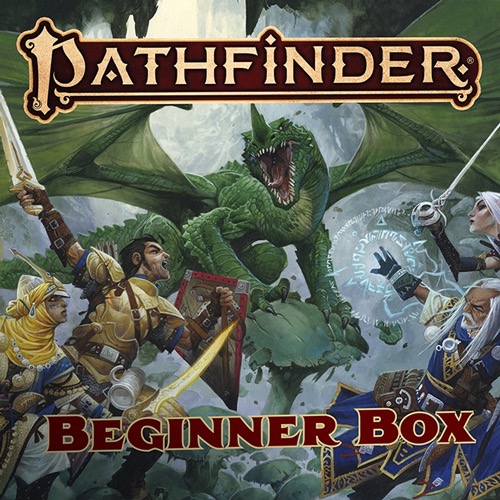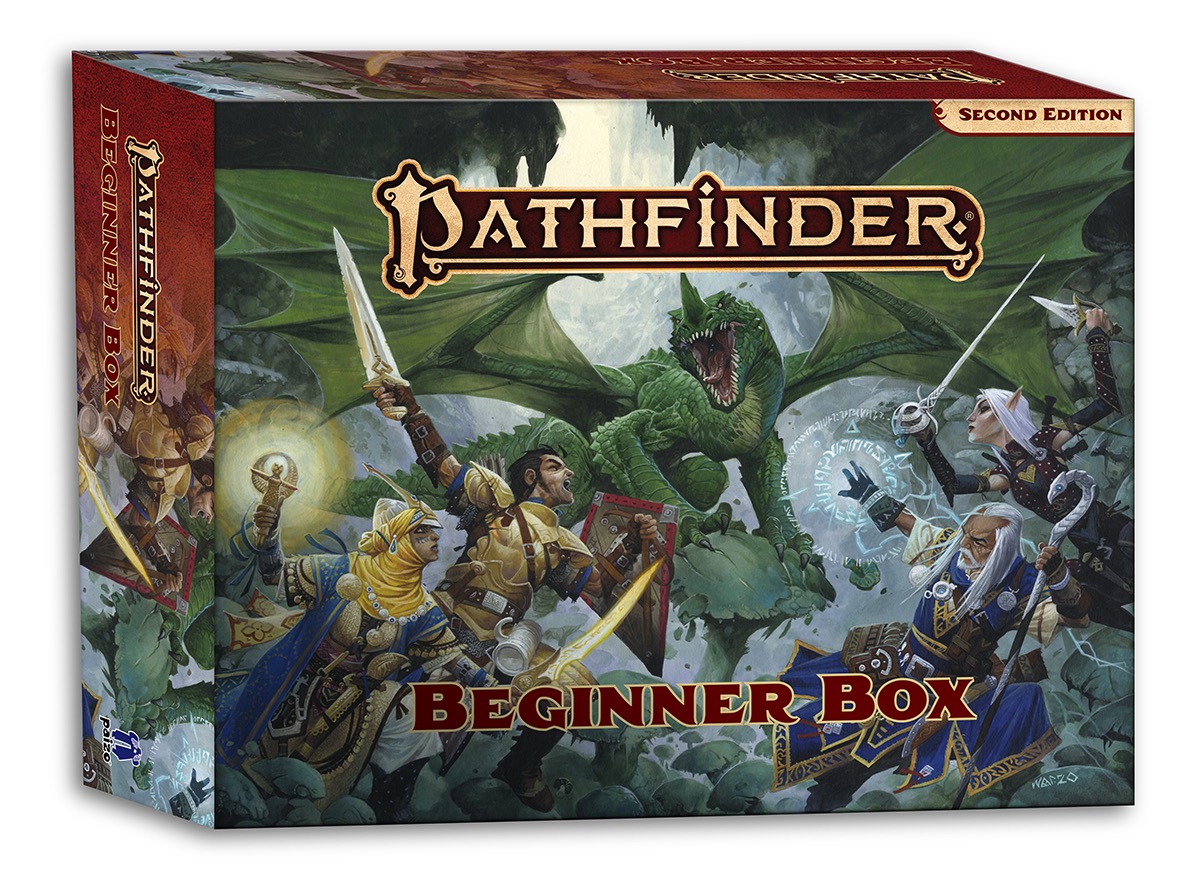New players will soon be able to take their first steps into an amazing world of fantasy adventure! Unveiled for November 2020, the Pathfinder Beginner Box will contain everything you need to learn how to play the Pathfinder, including rules to create your own fantasy hero and tools to make your own amazing stories.
Will you be a courageous fighter, charging headfirst into battle, or a sly rogue, moving quietly to strike at foes from the shadows? Maybe you will be a knowledgeable wizard, wielding incredible arcane spells or a wise and pious cleric, using the power of your deity to shape the world for the better. It is all up to you!
Inside you will find a rich toolbox, filled with everything you need to get started, including rules for character generation, an introductory adventure, guidelines to build your own campaign, character sheets, a full-color map, character pawns, and dice. This deluxe box set will be the ideal introduction to the Pathfinder, leading the way to a lifetime of adventure!
The Pathfinder Beginner Box will include:
- An 80-page Hero's Handbook, including rules for character generation, a solo adventure, skills, spells, and equipment.
- A 96-page Game Master's Handbook, containing an introductory adventure, over 20 pages of monsters, rules for building your own adventure, and magic items.
- Four premade characters so you can jump right into the action and four blank character sheets if you want to make your own hero.
- Over 100 character and monster pawns to use on the full-color double-sided adventure map.
- Four game reference cards to help players remember their actions.
- A complete set of polyhedral dice, including a d20, d12, d10, d8, d6, and d4.
For a glimpse of what’s to come, check out the Starfinder Beginner Box. Adventures Ahead!
Aaron Shanks,
Marketing and Media Manager
Pathfinder Beginner Box Announced for November
Friday, March 20, 2020







